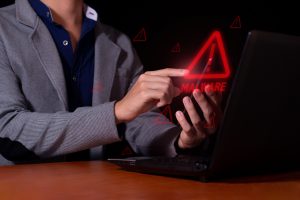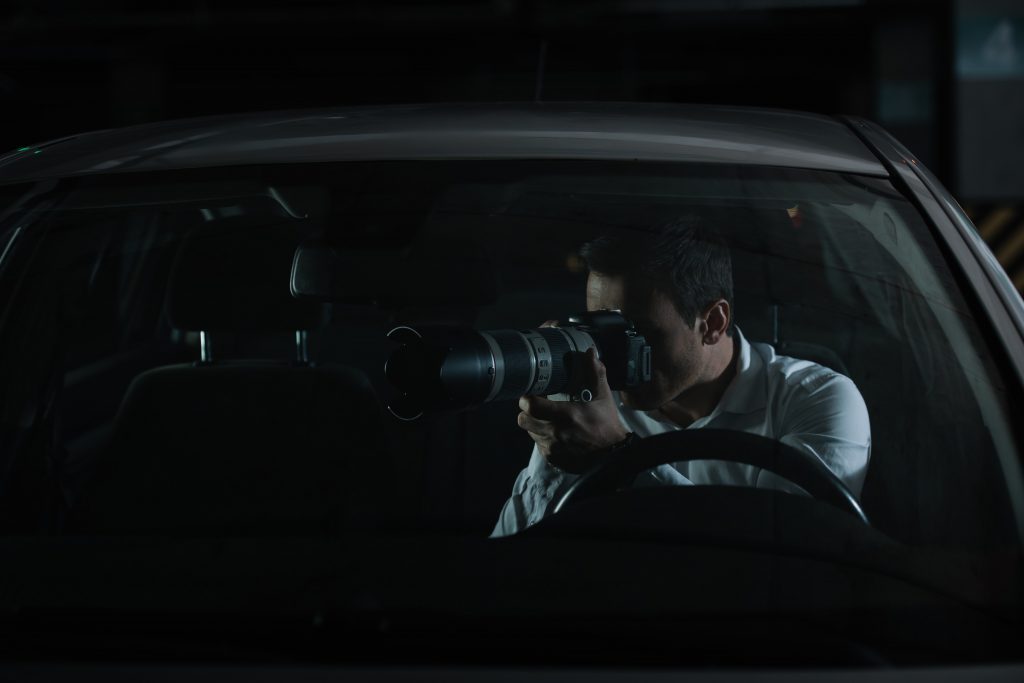
Have you ever been intrigued by the world of private investigation? Do you wonder how these professionals are able to gather information and solve intricate cases? If you have a fascination for the art of surveillance, then this article is for you.
Private investigation is a field that has always piqued the curiosity of many. From the thrilling stories portrayed in movies and books, to the real-life cases that make headlines, the work of private investigators is both fascinating and essential.
Mastering the art of surveillance is a crucial skill for any private investigator. It requires a combination of knowledge, experience, and the right techniques to gather the necessary evidence and solve cases successfully. In this article, we will explore some essential investigation techniques that every aspiring private investigator should know. Whether you are considering a career in this field or simply interested in understanding the intricacies of surveillance, this article will provide you with valuable insights.
Surveillance Skills: The Cornerstone of Effective Investigations
Surveillance skills are the cornerstone of effective investigations for private investigators. With the ability to discreetly observe and document activities, surveillance techniques provide valuable insights and evidence for uncovering the truth. Private investigators must possess a deep understanding of investigative techniques, legal and ethical boundaries, and continuously adapt to new technology and potential threats. These skills enable them to conduct efficient and accurate investigations, ensuring reliable results. From tracking individuals to uncovering hidden information, surveillance skills are vital in making informed decisions and obtaining objective evidence.
Private investigators who excel in the art of surveillance have the necessary tools to assist in various investigations, such as background checks, fraud investigations, infidelity investigations, and complex surveillance operations. By mastering surveillance techniques, private investigators can effectively gather crucial evidence and uncover important information for their clients.
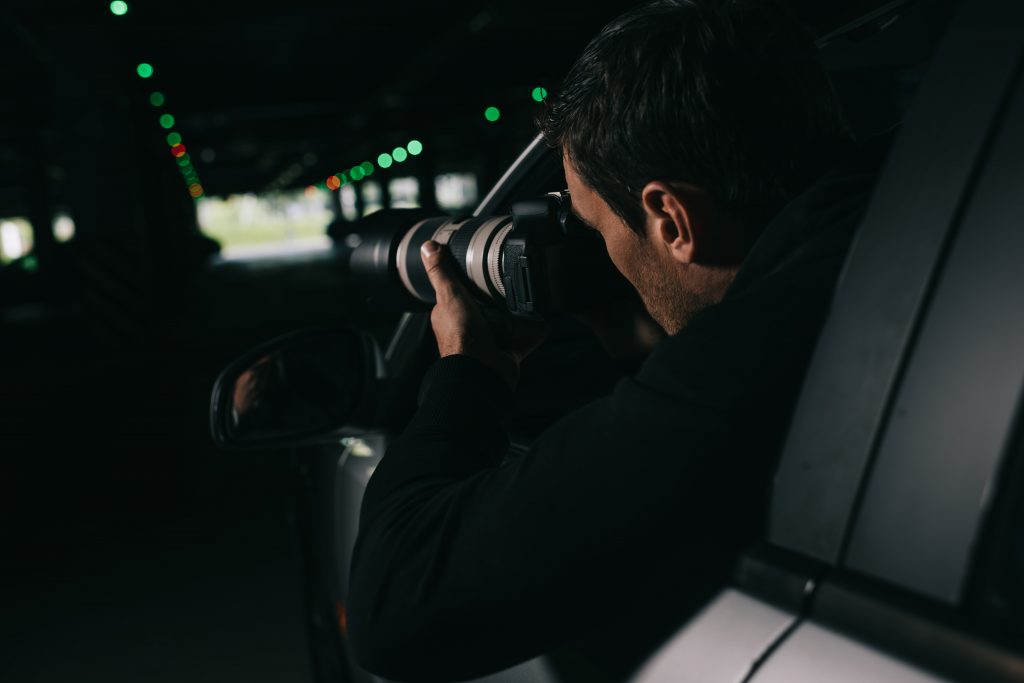
Understanding the Basics of Surveillance Activity
Surveillance activity is a valuable tool when it comes to private investigations. It allows investigators to gather critical information and evidence to make informed decisions. Mastering the art of surveillance requires a deep understanding of the principles and techniques involved.
The key challenge for investigators is mastering the art of invisibility. Being able to blend into the surroundings and go unnoticed is essential for effective surveillance. Investigators must hone their skills in observing without being observed, whether they are tailing a subject on foot, monitoring an area from a parked vehicle, or conducting mobile surveillance.
Patience is another crucial element in surveillance activity. Investigators must be prepared for long hours of observation without drawing attention to themselves. Sometimes, the desired information takes time to present itself, and investigators need to exercise restraint to avoid making hasty decisions or compromising the investigation.
Navigating tense encounters is also a challenge faced by investigators during surveillance. Investigators may find themselves in situations where their cover is at risk of being blown or confrontations with suspicious individuals occur. Handling these encounters with composure, quick thinking, and adherence to ethical boundaries is paramount.
Developing a Wide Range of Investigative Techniques
Developing a wide range of investigative techniques is crucial for private investigators to enhance their skills and improve the overall success of their investigations. With a diverse toolkit of techniques, investigators can effectively handle different types of cases, including fraud investigations, infidelity investigations, and child custody investigations.
One important technique is covert surveillance, which involves discreetly monitoring subjects without their knowledge. This technique allows investigators to gather evidence in a discreet manner, providing valuable insights into a subject’s activities and behavior. Covert surveillance can be used in various situations, such as fraud investigations to gather evidence of deceptive actions or infidelity investigations to uncover proof of a cheating spouse.
Another essential technique is conducting thorough background checks. This involves researching an individual’s personal and professional history to uncover any relevant information. Background checks can be instrumental in fraud investigations to identify previous fraudulent activities or in child custody investigations to assess a parent’s suitability for custody.
In addition to these techniques, private investigators should also develop skills in conducting interviews and gathering witness statements, analyzing financial records, and utilizing technology for social media investigations. By mastering a wide range of investigative techniques, investigators can adapt to the unique demands of each case and make informed decisions based on solid evidence.
Utilizing Technology as a Valuable Tool for Investigations
In today’s digital age, private detectives can harness advanced technology as a valuable tool to enhance their investigative capabilities. From high-resolution surveillance cameras to smart home automation systems, digital forensics tools, and communication platforms, these technological advancements can provide invaluable support in conducting efficient and effective investigations.
One crucial technological tool that private investigators can utilize is high-resolution surveillance cameras. These cameras offer crisp and detailed video evidence, enabling investigators to document a subject’s activities with precision. Whether it’s capturing evidence of infidelity or monitoring potential threats, surveillance cameras can be a game-changer in gathering solid evidence for investigations.
Smart home automation systems also play a significant role in modern investigations. These systems can be integrated with surveillance cameras and motion sensors, allowing investigators to remotely monitor a subject’s residence. By accessing live feeds and receiving instant alerts, investigators can conduct covert surveillance with ease, ensuring they don’t miss any crucial moments or activities.
Digital forensics and data analysis tools are another essential aspect of the investigative process. Private detectives with technical skills in this area can extract and analyze data from electronic devices, uncovering vital information buried within digital footprints. Digital forensics knowledge enables investigators to recover deleted data, trace online activities, and establish connections between individuals or events.
Furthermore, communication platforms facilitate seamless collaboration among investigative teams. With secure and encrypted communication channels, private investigators can share information, exchange real-time updates, and coordinate their efforts effectively. This collaborative environment enhances the overall efficiency of investigations, enabling faster progress and more accurate results.
Technical skills, especially in social media investigations, are of utmost importance for modern private detectives. Proficiency in open-source intelligence (OSINT) techniques allows investigators to gather information from publicly available sources, such as social media platforms, forums, and news articles. Data collection and analysis methods help in organizing and processing vast amounts of data efficiently, while understanding metadata and digital footprints ensures that investigators can trace online activities and identify relevant connections.
Surveillance Strategies and Processes: Making the Most of Your Time and Resources
Surveillance strategies and processes are crucial for private investigators to gather accurate information and make the most of their time and resources. Careful planning and preparation lay the foundation for successful surveillance operations.
One effective strategy is to conduct thorough research on the target before starting surveillance. This includes gathering information on routines, habits, and known associates. By having this background knowledge, private investigators can strategize the best surveillance times and locations, minimizing time wasted on unproductive monitoring.
Another key process is the use of various surveillance techniques. Mobile surveillance involves following the target discreetly while maintaining a safe distance. Covert surveillance employs disguises and hidden cameras to ensure the investigator’s presence goes unnoticed. Stakeout surveillance involves staking out a location to document the subject’s activities.
The use of advanced technology and equipment is instrumental in enhancing surveillance effectiveness. GPS tracking devices allow investigators to monitor a subject’s movements in real-time. High-resolution cameras capture clear video evidence, while listening devices gather valuable audio information. Drones can provide a bird’s-eye view, expanding surveillance capabilities.
Maximizing time and resources also involves astute decision-making. Skilled investigators know when to escalate surveillance, employ multiple surveillance teams, or call in additional resources such as forensic experts.
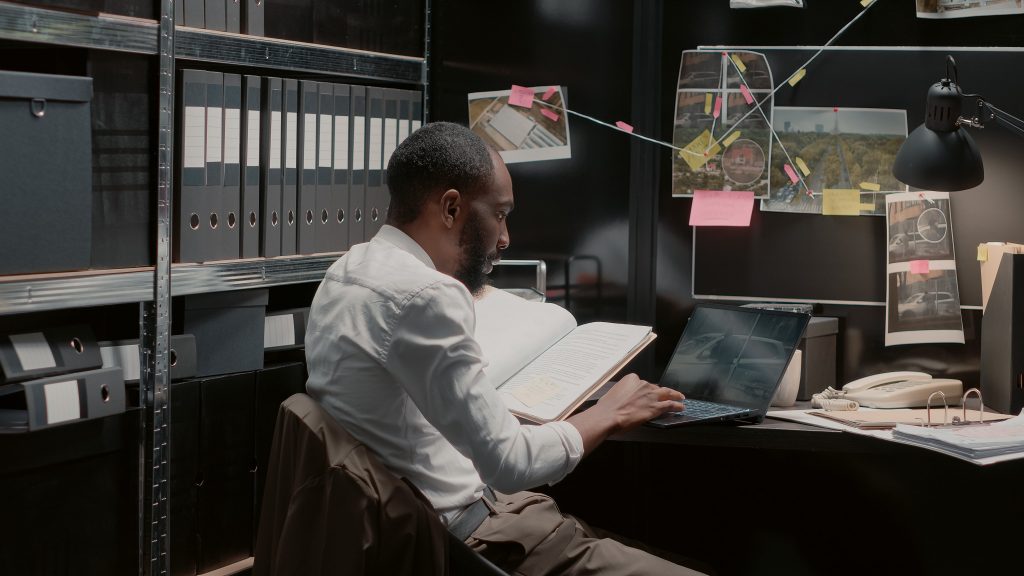
Advanced Surveillance Methods: Taking Investigations to the Next Level
Advanced surveillance methods are crucial for elite private detectives who aim to elevate their investigations to the next level. These methods go beyond traditional surveillance techniques by incorporating cutting-edge technology that provides unparalleled efficiency and accuracy.
Long-range cameras are used to capture clear images from a distance, enabling investigators to monitor subjects without drawing attention to their presence. Hidden cameras, also known as covert cameras, are strategically placed in inconspicuous locations to gather evidence discreetly. These cameras can be disguised as everyday items or hidden in objects such as clothing buttons, pens, or even eyeglasses.
Unmanned cameras, including remote-controlled cameras or those operated by AI, are becoming increasingly popular in the field of surveillance. These cameras can be placed in targeted areas and remotely controlled or programmed to track the subject’s movements. They provide real-time video footage and allow investigators to monitor multiple locations simultaneously.
Night vision technology is invaluable for surveillance operations that take place in low-light or dark conditions. It enhances visibility by using infrared or thermal imaging, enabling investigators to gather evidence without being hindered by darkness.
Drones have revolutionized surveillance methods by providing a bird’s-eye view of targeted areas. Equipped with high-resolution cameras and GPS technology, drones can capture images and videos from various angles and heights, expanding the surveillance capabilities of investigators.
It is important to note that these advanced surveillance methods must be used responsibly and within the boundaries of the law. Private detectives must obtain legal consent and adhere to privacy regulations. Misuse of technology can result in legal consequences and damage the reputation of investigators.
Ethical Boundaries of Surveillance: Knowing Your Rights and Responsibilities
In the world of private investigation, mastering the art of surveillance requires more than just technical skills and advanced techniques. It is crucial for private investigators to understand and respect the ethical boundaries that come with the job. Upholding privacy rights, staying within the legal framework, and providing transparent, objective reporting are essential aspects of ethical surveillance.
Respecting privacy rights is paramount in conducting surveillance investigations. Private investigators must be mindful of individuals’ rights to privacy and avoid invasive practices that may infringe upon those rights. This includes obtaining legal consent when necessary and not trespassing on private property without proper authorization.
Operating within the legal framework is equally important. Private investigators must have a deep understanding of local laws and regulations regarding surveillance activities. Engaging in unauthorized actions can have serious legal consequences, not only for the investigator but also for their clients. It is essential to obtain the necessary permits, licenses, or legal consent before conducting any surveillance operations.
Providing transparent, objective reporting is another ethical responsibility for private investigators. This means delivering accurate and unbiased findings to their clients. Objective reporting ensures that the information collected through surveillance activities is presented truthfully and without prejudice.
Failure to adhere to these ethical boundaries can result in damaging the credibility of the profession and the reputation of individual investigators. In addition to legal ramifications, unethical conduct can lead to public distrust and hinder the effectiveness of private investigation services.
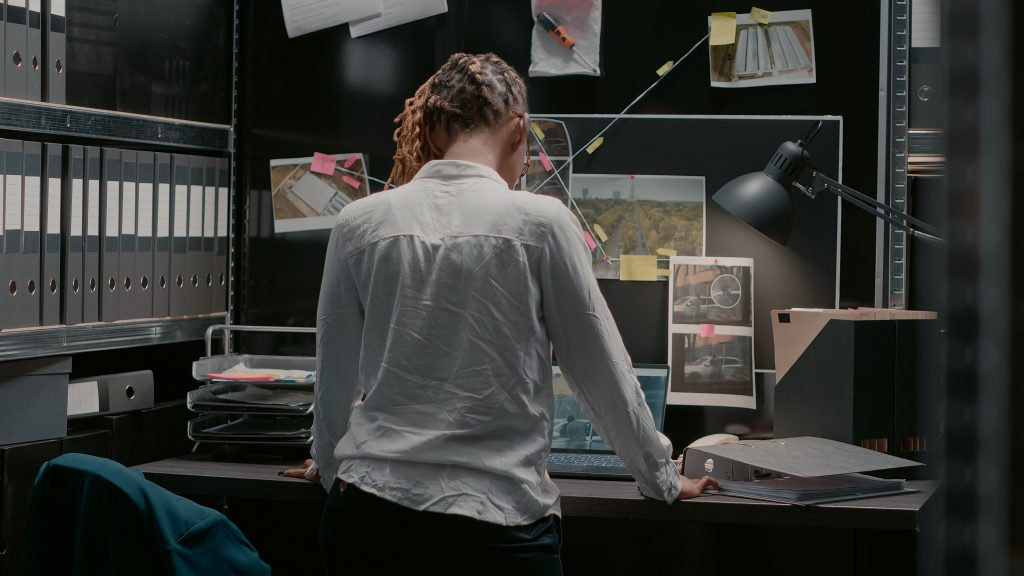
Conclusion
In conclusion, mastering the art of surveillance is of utmost importance for private investigators. The use of effective surveillance techniques empowers investigators to gather the necessary evidence and valuable insights needed to make informed decisions during their investigations. It is essential for investigators to have a deep understanding of the various surveillance methods available and to continuously update their skills in order to stay ahead in this rapidly evolving field.





